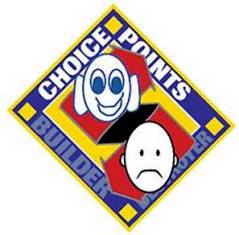That title is a catchy cliché for an important concept in the development of your
career. When your eyes open in the morning and you are lying there in
the quietness of your bedroom, does the thought come to mind, "AWESOME, I
wonder what I can accomplish today." Or is it more like, "I can't
believe it's only Tuesday and I have to get out of this bed and go to work."
The difference
between "GET TO" and "HAVE TO" seems to have a direct correlation
between building a career or having a job. The simple choices we make
day after day and the perspective we take with us each morning toward
our work determine the difference between making a life or simply making
a living.
We begin to "make a life" when we have the mindset that life is good and I get to make it better, as opposed to making a living by moving
aimlessly through each day of the workweek struggling just to earn a
paycheck. The attitudes sound so drastically different and yet they can
be separated by a mere thought or a few seemingly innocent actions. The
results over time, however, are drastically different. Below is a link
to one of my favorite stories on two men; one chose to make a life and
one a living. One was likely a Builder and one a Destroyer. Even if you
have read it before, it is a fun reminder of the potential of the
choices we make in our careers. Take a few minutes to reflect on where
you are today and where you would like to be. Then ask yourself, "What
is the simplest thing I can do today to move myself in a 'life making'
direction?
Click here to read the "Are You a Builder or a Destroyer?" article.
Success Factors in Building Your Career
WHAT DOES YOUR DATABASE LOOK LIKE?
Have you worked at building a network of contacts that can be called on for insight to a problem or to open a door to a prospect? People that are moving forward in their careers have a list of contacts that they can pull from continually. If they are making a decision on running their business, they will call one of the dozens of business owners they know around the country. Careers are built by the number of people you have impacted and are willing to help in return.
WHAT PROFESSIONAL ORGANIZATIONS DO YOU BELONG TO?
The old saying "You are
known by the company you keep" is certainly true in developing your
career. It goes without saying that being a member of the professional
associations related to your business is important to stay on top of
industry trends. But what else have you chosen to participate in? For
example, if you want to continue to develop your sales and marketing
savvy you may choose a professional organization such as SME, Sales and
Marketing Executives, where contacts and information could be
invaluable. Also think about getting connected in your community through
charitable causes and belonging to local boards.
WHAT ARE YOU DOING TO EXPAND YOUR KNOWLEDGE?
Think
about the professionals in sports ... the true champions. Tiger Woods
constantly talks about something he learned on the practice tee or what
his swing coach has him working on. Professionals continue to learn and
they welcome every opportunity to do so. They seem to always be reading a
book on people skills or personal development. They read periodicals
relevant to their business and interests or have audio books on their
mobile devices. Career builders are passionate about learning and
applying their knowledge.
WHAT IS YOUR COMMITMENT LEVEL?
In my career as a
business coach, I have had the opportunity to meet many people in many
companies. When we come into work with an organization I get to know the
management and sales staff very well. Over the years I have seen a lot
of individuals building their careers and a lot destroying their
careers. (Again you can refer to the article linked above about
"BUILDERS AND DESTROYERS," or click here.)
Those
individuals that are building are investing time. They are not afraid
to spend an "all-nighter" finishing up an exciting design and presenting
it at 10 am the next day. They will meet on a Saturday afternoon with a
client from out of town and do so without feeling sorry for themselves
and usually have the support of their family and spouse. This support
comes because when the BUILDER was not at work, he or she was at home or
engaged in a family activity. Even though they put in a good number of
hours, there is balance throughout the year and everyone understands
that. The career DESTROYERS on the other hand, seem to look for the
fastest way out of working often delaying paperwork, returning phone
calls, or neglecting to share information with their peers that would
make everyone's job easier. The interesting paradox is the BUILDER
seldom complains about the hours being invested. The DESTROYER will be
the first to tell you they are overworked and underpaid, which is a key
indicator of the person only making a living and letting life pass them
by.
WHAT ARE YOU GOING TO DO NOW?
Those
professionals building their careers know it is never too late to get
better. Many professionals have stumbled and even failed along the way.
It is this failure that has sparked a passion for success. Learning from
past experiences and taking corrective action is the mark of a true
professional. Failure is a temporary state until a better solution comes
along and the BUILDER is constantly looking for that better solution.
The choices that determine the difference between a career and a job, a
life or a living, are made one at a time ... over and over again. The
perspective you take to work each day reflects the choice you have made
about yourself and your profession. What choice have you made today?




















